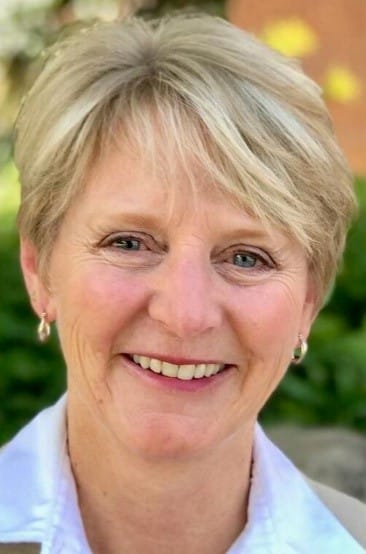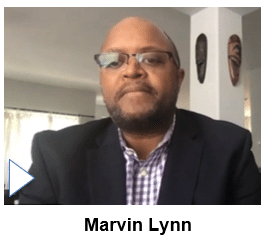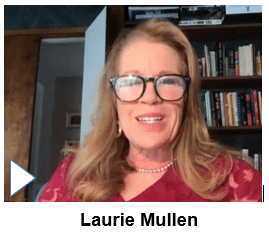15 Jun2020
By Linda Darling-Hammond and Janel George

This article originally appeared on the Learning Policy Institute Blog and is reprinted with permission.
The protests now enveloping our nation are, in one sense, long overdue. The recent police killings of George Floyd, Breonna Taylor, and Tony McDade are not isolated incidents: Every year in the United States, more than 1,000 civilians are killed by police, and Black people are disproportionately harmed. These murders and the lack of justice that has routinely accompanied them are, in turn, part of a pattern of institutionalized racism that limits the opportunities of African Americans and other people of color in every aspect of society: employment, housing, health care, and, yes, education.
12 Jun2020
By Bryan Zugelder
 I am currently seeking contributing authors for a book with IGI Global, for release in 2021, titled Empowering Formal and Informal Leadership While Maintaining Teacher Identity. This publication will add to the body of scholarship on teacher leadership and further help to define the opportunities and challenges for school districts to consider to promote teacher leadership in their settings. The edited book will provide a wide and broad perspective of the topic which can be used in university settings and practitioner settings related to teacher education and teacher development.
I am currently seeking contributing authors for a book with IGI Global, for release in 2021, titled Empowering Formal and Informal Leadership While Maintaining Teacher Identity. This publication will add to the body of scholarship on teacher leadership and further help to define the opportunities and challenges for school districts to consider to promote teacher leadership in their settings. The edited book will provide a wide and broad perspective of the topic which can be used in university settings and practitioner settings related to teacher education and teacher development.
Education researchers and practitioners are invited to submit a 1,000 to 2,000 word chapter proposal by July 9, 2020.
12 Jun2020
By Marni Kay, Stephanie Luke and Shane Trenta

The past several months have gone by in a blur for the world as rushed plans were created in response to the Coronavirus pandemic. There were many questions that surrounded education. How would we transition to an online learning platform? How would we ensure all students had equal access to devices and the internet? How would we reach students’ social-emotional needs?
Another challenge facing school districts was how to best support teachers. The short turnaround time that brick and mortar districts had to transition into online schools was a daunting task! How would professional development be facilitated? How would the delivery be and when/how would they require teachers to complete the training?
12 Jun2020
By Jacqueline Rodriguez
 Learners of all ages are being impacted by COVID-19 through school closures, the transition to online learning, and the shortage of teachers and faculty across the nation. AACTE continues its long tradition of addressing the educator career continuum and supporting PK-12 learners in America’s public schools by joining the Educating All Learners Alliance (EALA), an alliance dedicated to equity for complex learners.
Learners of all ages are being impacted by COVID-19 through school closures, the transition to online learning, and the shortage of teachers and faculty across the nation. AACTE continues its long tradition of addressing the educator career continuum and supporting PK-12 learners in America’s public schools by joining the Educating All Learners Alliance (EALA), an alliance dedicated to equity for complex learners.
EALA is specifically designed to help ensure the continuity of special education services during remote instruction and to spotlight best practice approaches for schools and educators. It represents a dynamic alliance of non-partisan groups deeply committed to the success of students with disabilities.
12 Jun2020
By Jean Haar
This article originally appeared in The Free Press and is reprinted with permission.

While the pandemic has brought disruption to daily lives, it has reminded us of the important role teachers play in their students’ lives. Teachers are hardworking, dedicated and effective. Recently, the irreplaceable nature of their work has been reaffirmed by millions of students and their parents.
Teachers not only promote learning, help students make connections and nurture their confidence, they also selflessly contribute to preparing the next generation of educators.
Minnesota State University has been preparing teachers for over 150 years and has had a long history of collaboration with its PK-12 partnership school districts. The university and the partnering school districts blend in-depth preparation with relevant practices and authentic experiences to ensure teacher candidates are prepared to meet the learning needs of all students.
09 Jun2020
By Jane E. West
 This blog post is written by AACTE consultant Jane West and is intended to provide updated information. The views expressed in this post do not necessarily reflect the views of AACTE.
This blog post is written by AACTE consultant Jane West and is intended to provide updated information. The views expressed in this post do not necessarily reflect the views of AACTE.
Educators Step Up for Racial Justice
Educators are responding to the killing of George Floyd and the racism it highlights by stepping up with a variety of initiatives and a renewed sense of urgency. Both the University of Minnesota and the Minnesota Public Schools have cut their ties with the Minneapolis Police Department.
The National Association of Secondary School Principals (NASSP) is urging school leaders to address racial disparities in discipline policies and the use of resource officers in response to the George Floyd killing and subsequent events.
The Leadership Conference on Civil and Human Rights and 400 other organizations, including both teachers’ unions, issued a letter calling on Congress to pass police reform legislation. They urge changes in areas including the use of force, policy accountability, racial profiling, militarization, data collection, and training.
09 Jun2020
By Monika Williams Shealey
The following article is an excerpt from the Rowan University Division of Diversity, Equity and Inclusion blog and is reprinted with permission.
 For the past 2 months our country has been in the grips of a pandemic that has challenged us in unimaginable ways and revealed our strength and courage in the face of fear. Unfortunately, during a time when we should be united against a common enemy, COVID-19, racism and xenophobia has become the cure for some who are inflicted with an irrational hatred and fear of people of color. Let’s not forget we were introduced to this pandemic as the “Chinese Virus” and the result was an onslaught of hate speech directed towards Asians and Asian Americans. We are not ok.
For the past 2 months our country has been in the grips of a pandemic that has challenged us in unimaginable ways and revealed our strength and courage in the face of fear. Unfortunately, during a time when we should be united against a common enemy, COVID-19, racism and xenophobia has become the cure for some who are inflicted with an irrational hatred and fear of people of color. Let’s not forget we were introduced to this pandemic as the “Chinese Virus” and the result was an onslaught of hate speech directed towards Asians and Asian Americans. We are not ok.
It is difficult for Black Americans to forget the legacy of the enslavement of Black bodies for economic consumption, Jim Crow, the civil rights movement and mass incarceration lives on. How does one talk about systemic racism and the oppression of people of color without acknowledging and understanding the current conditions that ensure our country remains divided by race. The election of a Black president was believed to be an indication of how far we’ve come as a country and we even heard that we were living in a post-racial country. Yet, the stories of police brutality, racial violence, and discrimination directed at Black Americans continued. We are not ok.
09 Jun2020
By Nicole Dunn
As our education system continues to provide online learning in the wake of the pandemic, all learning institutions will need to consider the element of equitable access to technology for their students. In the past, increasing our student’s digital access in online and blended learning environments has been on the shoulders of families as opposed to schools. Now that technology is being leveraged for learning in our school systems, low-and moderate-income (LMI) youth need education leaders to build the capability or partner with institutions that can support computers, broadband, and technological support access.
The National Center on Digital Equity in collaboration with the Federal Deposit Insurance Corporation (FDIC), is hosting a series of webinars titled “Community Reinvestment Act, Digital Equity and Systemic Inclusion.” In this four-part series, the FDIC will walk participants through systemic approaches that advance digital equity in LMI communities in support of financial and economic inclusion. With the immediate shift to online learning within our education system, this series brings our focus to stabilizing LMI youth and their communities.
05 Jun2020
By Jerrica Thurman


AACTE Board members Marvin Lynn and Laurie Mullen recently met with me to discuss the important role education leaders play in crises. In the videos, Lynn and Mullen shared the following:
“I think what we’re seeing happen at the national level is that inequalities are being exacerbated because of not only the lack of attention to those inequalities in the first place but [also] a kind of callousness around what those issues are, and who’s impacted and whether or not we should be focusing on them. I think leaders have an opportunity to take a crisis and turn it on its head by really focusing on issues of equity,” said Marvin Lynn, dean of the college of education at Portland State University. Lynn possesses decades of leadership and community service experience on prestigious national, state, and local committees. His leadership experience in schools of education includes his role as program coordinator at the University of Maryland and later at the University of Illinois at Chicago. Lynn also was the associate dean at the University of Wisconsin-Eau Claire and dean of the School of Education at Indiana University South Bend.
05 Jun2020
By Bryan Carter
 In the midst of the COVID-19 pandemic, teacher preparation programs are faced with the difficulty of how to support and evaluate candidates in the field. Here in Washington state, we already face a shortage of willing mentors to host our candidates. A recent study by Western Washington University and my colleagues at the University of Washington estimated that only 3-4% of teachers serve as mentors any given year.[1] According to the findings of a state workgroup in which I participated, this trend is even more pronounced among rural and remote school districts.[2] As a result, programs throughout our state are looking for effective ways to further support our candidates in the field, particularly in rural and remote areas.
In the midst of the COVID-19 pandemic, teacher preparation programs are faced with the difficulty of how to support and evaluate candidates in the field. Here in Washington state, we already face a shortage of willing mentors to host our candidates. A recent study by Western Washington University and my colleagues at the University of Washington estimated that only 3-4% of teachers serve as mentors any given year.[1] According to the findings of a state workgroup in which I participated, this trend is even more pronounced among rural and remote school districts.[2] As a result, programs throughout our state are looking for effective ways to further support our candidates in the field, particularly in rural and remote areas.
One solution that is effective and can support efforts to maintain teacher certifications, including during the pandemic, is the use of online observations. We began using Edthena in 2015, and over the last 5 years, we have witnessed tremendous success and accessibility, especially for candidates in rural and remote school districts. We utilize Edthena’s platform as part of multiple measures to assess candidates in field placements. Field supervisors can use the online video tool in conjunction with traditional in-person observations, providing a nice mixture of evidence for our program to assess our candidates’ readiness towards licensure. Here are some of the highlights of our experience using online video observations.
04 Jun2020
By AACTE
On behalf of the American Association of Colleges for Teacher Education (AACTE) Board of Directors, Chair Ann Larson issued the following statement today on race matters in America:
“AACTE leaders are compelled to voice our dissent of the recent, tragic events that have resulted in the horrendous murders of Black Americans. The unjust deaths of George Floyd, Ahmaud Arbery, Breonna Taylor, and many others represent incendiary racism that has deep, historic roots in our society. This profound moment in time has brought despair not only to the Black American community, but also to innumerable individuals, families, and communities representing legions of cultures and ethnicities throughout the country and the world. In the words of Dr. Martin Luther King Jr., ‘Injustice anywhere is a threat to justice everywhere. We are caught in an inescapable network of mutuality, tied in a single garment of destiny. Whatever affects one directly, affects all indirectly.’
It is imperative that educators embrace their responsibility as front line workers in dismantling structural racism within the American education system. Schools play a critical role in educating students about citizenship and societal values, which have long perpetuated the cycle of racial injustice. Educators must be change agents for reversing the miseducation of white people about black and brown people, and for promoting racial equity. There is a critical need for well-prepared, culturally responsive teachers who can educate and guide learners to value the lives of all human beings and hold others accountable in practicing justice, ensuring equitable access, promoting and assuring diversity, fostering inclusive policies and practices in all aspects of our society, and offering hope and optimism to all children.
04 Jun2020
By Jerrica Thurman
AACTE is happy to announce the newest additions to its staff: Jacqueline Cantow, program coordinator, programs and professional learning; Katrina Norfleet, content strategist; Nicole Dunn, assistant director, programs and professional learning; and Weade James, director of development and research.
 Jacqueline Cantow
Jacqueline Cantow
Jackie Cantow is an experienced program coordinator with a demonstrated history of working in education and fundraising. Prior to joining AACTE, she worked with The AnBryce Foundation and Brandeis University. She holds a degree in political science and sociology from the George Washington University.
Cantow’s vision for AACTE is to advance the core values of diversity, equity, and inclusion. She will assist the Black and Hispanic/Latino Male Teachers Initiative Networked Improvement Community to increase the presence of these individuals within the field of education. One of her goals is to highlight the innovative work of this demographic and help promote best practices for recruiting and retaining these diverse teachers in the education community. She will also assist with the Special Education Networked Improvement Community to advance its research goals. Cantow joined AACTE in May 2020.
03 Jun2020
By AACTE
(June 3, 2020, Washington, D.C.) – Education leaders’ outlook for the 2020-21 academic year anticipates a widening gap in the supply of new teachers, according to the April 2020 survey conducted by the American Association of Colleges for Teacher Education (AACTE). The findings show 23% of respondents expect a decline in continuing education student enrollment of more than 10%, and 40% expect such a decline among new students. The study on how the coronavirus pandemic is affecting educator preparation programs was based on nearly 200 responses from individuals in leadership roles at colleges of education.
“Our survey examines the critical demands in teacher preparation as we continue to navigate the global health pandemic and prepare for the academic year beginning in the fall,” said Lynn M. Gangone, AACTE president and CEO. “The data generated in this report provide important benchmarks for building the teaching workforce. We view these findings as an important indicator of the increased challenges ahead and key factors for prioritizing our efforts to move our profession forward.”
02 Jun2020
By Ann E. Larson

COVID-19 has forced educators to say goodbye to their classrooms and embrace adapting their pedagogy to online formats overnight. They have learned new technology, found creative ways to engage students remotely, and most importantly, kept education moving forward. The current public health crisis has placed a well-deserved spotlight on teachers. As parents struggle to balance work, supervise virtual classrooms, and co-educate their children, a new awareness and appreciation for the influence, power, and value of great teachers has emerged.
We have all read headlines about COVID-19’s drastic impact on the education system. We have seen firsthand the pandemic’s sweeping effect on our education institutions and students. And we have all been challenged to find remote learning opportunities that ensure teacher candidates are well-prepared to enter their own classrooms—whether in-person, hybrid, or virtual. While the hurdles we face are multidimensional, overcoming them is essential. To quote Linda Darling-Hammond, “If you don’t have a strong supply of well-prepared teachers, nothing else in education can work.”
02 Jun2020
By AACTE

On behalf of the American Association of Colleges for Teacher Education (AACTE), President and CEO Lynn M. Gangone issued the following statement today responding to the killing of George Floyd and systemic racism:
“AACTE acknowledges an insidious threat to the foundation of American democracy—institutional and structural racism. The construct of racism in our country is rooted in the historical, systemic abuse of power, based upon white supremist ideologies, and resulting in white privilege. Racism has long been entrenched in American institutions and policies that reinforce an unjust and disparate allocation of rights and resources to white people, while disallowing them to Black and other people of color—including our institutions of learning.
AACTE is outraged over the recent videos of Amy Cooper weaponizing the police against Chris Cooper in New York City’s Central Park, George Floyd’s murder by a Minneapolis police officer, and the hunting and killing of Ahmaud Aubery by men with ties to their local Georgia police department, as well as the murder of Breonna Taylor by police while sleeping in her home. The latter events represent only a few of the string of killings of Black citizens at the hands of white perpetrators and law enforcement. In each case, the victims were unarmed. In each case, the Black community was forced to mobilize, call out the racist crime, and demand justice that has yet to be realized.



 I am currently seeking contributing authors for a book with IGI Global, for release in 2021, titled Empowering Formal and Informal Leadership While Maintaining Teacher Identity. This publication will add to the body of scholarship on teacher leadership and further help to define the opportunities and challenges for school districts to consider to promote teacher leadership in their settings. The edited book will provide a wide and broad perspective of the topic which can be used in university settings and practitioner settings related to teacher education and teacher development.
I am currently seeking contributing authors for a book with IGI Global, for release in 2021, titled Empowering Formal and Informal Leadership While Maintaining Teacher Identity. This publication will add to the body of scholarship on teacher leadership and further help to define the opportunities and challenges for school districts to consider to promote teacher leadership in their settings. The edited book will provide a wide and broad perspective of the topic which can be used in university settings and practitioner settings related to teacher education and teacher development.
 Learners of all ages are being impacted by COVID-19 through school closures, the transition to online learning, and the shortage of teachers and faculty across the nation. AACTE continues its long tradition of addressing the educator career continuum and supporting PK-12 learners in America’s public schools by joining the
Learners of all ages are being impacted by COVID-19 through school closures, the transition to online learning, and the shortage of teachers and faculty across the nation. AACTE continues its long tradition of addressing the educator career continuum and supporting PK-12 learners in America’s public schools by joining the 
 This blog post is written by AACTE consultant Jane West and is intended to provide updated information. The views expressed in this post do not necessarily reflect the views of AACTE.
This blog post is written by AACTE consultant Jane West and is intended to provide updated information. The views expressed in this post do not necessarily reflect the views of AACTE. For the past 2 months our country has been in the grips of a pandemic that has challenged us in unimaginable ways and revealed our strength and courage in the face of fear. Unfortunately, during a time when we should be united against a common enemy, COVID-19,
For the past 2 months our country has been in the grips of a pandemic that has challenged us in unimaginable ways and revealed our strength and courage in the face of fear. Unfortunately, during a time when we should be united against a common enemy, COVID-19, 

 In the midst of the COVID-19 pandemic, teacher preparation programs are faced with the difficulty of how to support and evaluate candidates in the field. Here in Washington state, we already face a shortage of willing mentors to host our candidates. A recent
In the midst of the COVID-19 pandemic, teacher preparation programs are faced with the difficulty of how to support and evaluate candidates in the field. Here in Washington state, we already face a shortage of willing mentors to host our candidates. A recent  Jacqueline Cantow
Jacqueline Cantow
